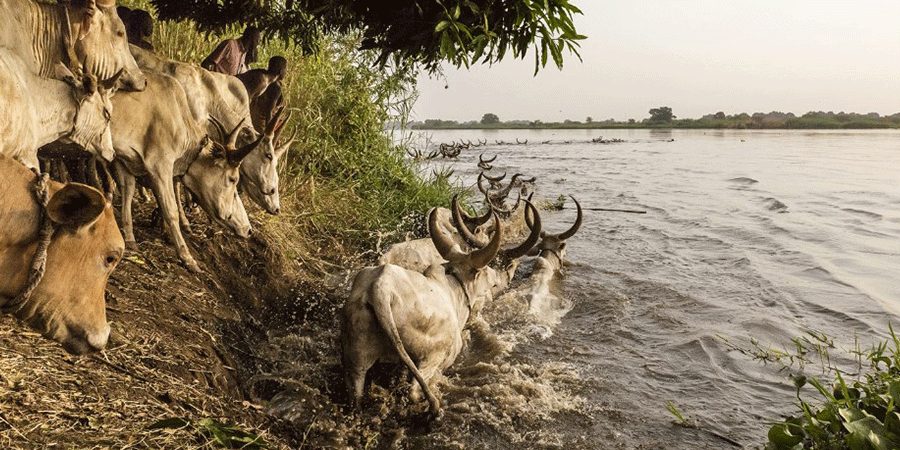By Micheal Okorie
In a perplexing incident that has left local farmers and authorities baffled, approximately 200 cattle perished under unexplained circumstances while attempting to cross the River Benue. This troubling event has sparked an urgent investigation and raised concerns over livestock health, environmental conditions, and potential risks to agricultural practices in the region.
On Thursday, farmers along the banks of the River Benue reported the sudden deaths of their cattle, which had been migrating to greener pastures on the opposite bank. Witnesses described a chaotic scene as the cattle, seemingly healthy just hours before, began to collapse as they entered the river. Eyewitness accounts suggest that the animals exhibited signs of distress, including foaming at the mouth and difficulty breathing. Local veterinarians have been called to investigate the cause, but the results remain inconclusive.
“Every single cow was in perfect health before this tragedy,” said Adamu Ibrahim, a local farmer who lost 30 cattle in the incident. “It was horrifying to watch them die in front of our eyes. We need answers, and we need them fast.”
Initial examinations of the water quality in the River Benue showed elevated levels of certain pollutants, leading some experts to suggest that environmental factors could have played a role in the deaths. “The river is a vital resource for both livestock and the community,” stated Dr. Ngozi Akpan, a veterinary pathologist at the University of Nigeria. “If there are contaminants present, they could certainly have harmful effects on the animals’ health. We must conduct thorough water tests and analyze the results.”
In addition to possible pollution from nearby agricultural runoff, locals have raised concerns about illegal mining activities in the region. Community leaders claim that these operations may have inadvertently introduced harmful substances into the river ecosystem. “Mining has been an issue for years, and it seems the impact is now spilling over into agriculture,” warned Samuel Ndubuisi, a community activist. “The cattle deaths are a wake-up call for everyone in the area. We must protect our environment to safeguard our livelihoods.”
While local authorities have formed a task force to investigate the causes of these mysterious deaths, skepticism remains among the farmers who depend on their cattle for sustenance and income. Many fear that without prompt intervention and accountability, their livelihoods are at risk. “We rely on our cattle for everything—from milk to sales,” Ibrahim lamented. “If this continues, we won’t know what to do.”
The investigation has drawn attention from agricultural organizations and environmental watchdogs, who are calling for a rigorous study of the river’s ecosystem. “We need to assess the situation comprehensively,” said Miriam Olatunji, a representative from the Nigerian Livestock Association. “This isn’t just about the cattle; it’s about community health and food security. Everyone needs to work together to prevent future tragedies.”
Authorities have urged farmers to monitor their livestock closely and report any unusual behavior as investigations continue. “We are taking this matter very seriously,” stated Abubakar Dantata, the local agricultural commissioner. “We will work diligently to determine the cause and ensure that our farmers can safely use the River Benue.”
In conclusion, the deaths of these 200 cattle have ignited a critical dialogue about environmental health, agricultural practices, and community responsibility. As investigations unfold, farmers and authorities alike are left grappling with the implications of this event. The fate of the River Benue—and the livelihoods of those around it—hangs in the balance as the community collectively seeks answers and actions to prevent such a tragedy from ever occurring again.





